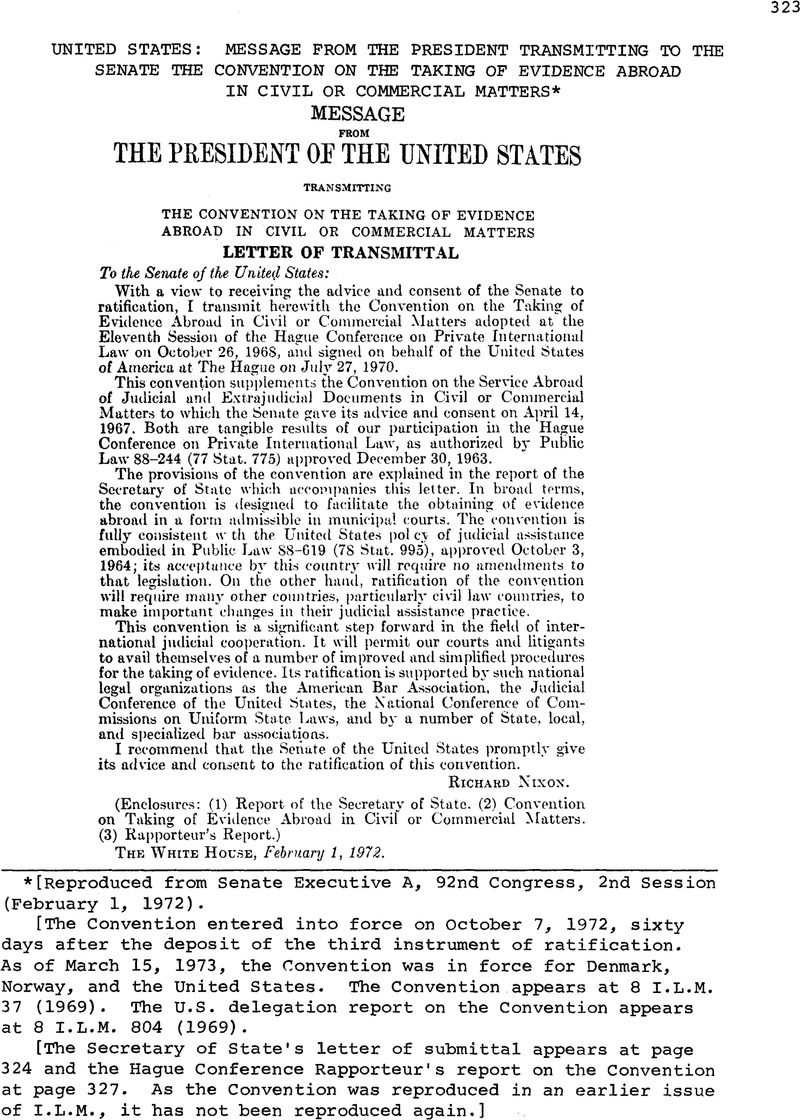No CrossRef data available.
Published online by Cambridge University Press: 04 April 2017

[Reproduced from Senate Executive A, 92nd Congress, 2nd Session (February 1, 1972).
[The Convention entered into force on October 7, 1972, sixty days after the deposit of the third instrument of ratification. As of March 15, 1973, the Convention was in force for Denmark, Norway, and the United States. The Convention appears at 8 I.L.M. 37 (1969). The U.S. delegation report on the Convention appears at 8 I.L.M. 804 (1969).
[The Secretary of State’s letter of submittal appears at page 324 and the Hague Conference Rapporteur’s report on the Convention at page 327. As the Convention was reproduced in an earlier issue of I.L.M., it has not been reproduced again.]
1 Throughout this Report, the word “consul” will be Used as a short-hand substitute for the lengthy phrase "diplomatic officer or consular agent." It should be so read wherever it appears.
2 By the same Rapportour.
3 This provision was of course, adopted with all the macrophone and anglopiion countries abstaining.
4 It must be empharized that the acceptance by a State of English or French under article 4(2) or of specific languages under article 4(1) is for the purposes of this Convention only. No such act will make those languages "official" languages of the States for any purpose. not do those languages become acceptable for any purpose other than the purposes of this Convention.
1 Reproduced in American Journal of International Law (1967), p. 776.